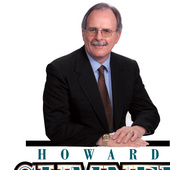BELOW IS INFORMATION ON A REVERSE MORTGAGE A WAY TO UNLOCK THE EQUITY IN YOUR HOME WHEN YOU RETIRE WITHOUT SELLING YOUR HOME
Until recently, there were two main ways to get cash from your home:
• you could sell your home, but then you would have to move; or
• you could borrow against your home, but then you would have to make monthly loan repayments.
Now reverse mortgages give you a third way of getting money from your home. And you don't have to leave your home or make regular loan repayments.
A reverse mortgage is a loan against your home that you do not have to pay back for as long as you live there. It can be paid to you all at once, as a regular monthly advance, or at times and in amounts that you choose. You pay the money back plus interest when you die, sell your home, or permanently move out of your home.
Who's Eligible
All owners of the home must apply for the reverse mortgage and sign the loan papers. All borrowers must be at least 62 years of age for most reverse mortgages. Owners generally must occupy the home as a principal residence (where they live the majority of the year).
Single family one-unit dwellings are eligible properties for all reverse mortgages. Some programs also accept 2-4 unit owner-occupied dwellings, along with some condominiums, cooperatives, planned unit developments, and manufactured homes. Mobile homes are generally not eligible.
How They Work
Reverse mortgage loans typically require no repayment for as long as you live in your home. But they must be repaid in full, including all interest and other charges, when the last living borrower dies, sells the home, or permanently moves away.
Because you make no monthly payments, the amount you owe grows larger over time. As your debt grows larger, the amount of cash you would have left after selling and paying off the loan (your "equity") generally grows smaller. But you generally cannot owe more than your home's value at the time the loan is repaid.
Reverse mortgage borrowers continue to own their homes. So you are still responsible for property taxes, insurance, and repairs. If you fail to carry out these responsibilities, your loan could become due and payable in full.
What You Get
These loans can be paid to you all at once in a single lump sum of cash, as a regular monthly loan advance or as a creditline that lets you decide how much cash to use and when to use it. Or you may choose any combination of these payment plans.
Some reverse mortgages are offered by state and local governments. These "public sector" loans generally must be used for specific purposes, such as paying for home repairs or property taxes. Other reverse mortgages are offered by banks, mortgage companies, and savings associations. These "private sector" loans can be used for any purpose.
The amount of cash you can get from a private sector reverse mortgage generally depends on your age, your home's value and location, and the cost of the loan. The greatest cash amounts typically go to the oldest borrowers living in the most expensive homes on loans with the lowest costs.
The amount of cash you can get also depends on the specific reverse mortgage plan or program you select. The differences in available loan amounts can vary greatly from one plan to another. Most homeowners get the largest cash advances from the federally insured Home Equity Conversion Mortgage (HECM). HECM loans often provide much greater loan advances than other reverse mortgages.
What You Pay
The lowest cost reverse mortgages are offered by state and local governments. They generally have low or no loan fees, and the interest rates are typically low or moderate as well. Private sector reverse mortgages are very expensive, and include a variety of costs. An application fee usually includes the cost of an appraisal and a credit report. Other loan costs typically include an origination fee, closing costs, insurance, and a monthly servicing fee. These costs generally can be paid with loan advances, which mean they are added to your loan balance (the amount you owe). Interest is charged on all loan advances.
Reverse mortgages are most expensive in the early years of the loan, and then become less costly over time. The cost can be very high in the short term, and is least costly if you live longer than your life expectancy. The federally insured Home Equity Conversion Mortgage (HECM) is generally less expensive than other private sector reverse mortgages.
Consumers considering a private sector reverse mortgage other than a HECM should carefully consider how much more it may cost before applying. Other articles in The Basics section of this web site's Reverse Mortgages information provide more details on measuring and comparing the total cost of these loans.
Taxes, Estates, and Public Benefits
Reverse mortgages may have tax consequences, affect eligibility for assistance under Federal and State programs, and have an impact on the estate and heirs of the homeowner.
An American Bar Association guide states that generally "the IRS does not consider loan advances to be income." The guide explains that if you receive SSI, Medicaid, or other public benefits loan advances are counted as "liquid assets" if you keep them in an account past the end of the calendar month in which you receive them. If you do, you could lose your eligibility for these programs if your total liquid assets (for example, money you have in savings and checking accounts) are greater than these programs allow.

Comments(0)